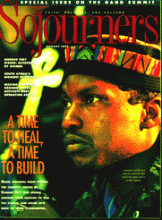I read murder mysteries the way some people eat peanuts or potato chips, with gusto and unappeasable appetite. After a day of work that has redeeming social value, I find I can let go of the difficult and perplexing with a little murder and mayhem delivered according to the reassuring formula of a good whodunnit.
All mysteries posit a particular evil--usually murder, often coupled with additional wickedness--as the problem. By finding the killer, a detective restores the world to its natural state, which is fundamentally pre-murder or uncorrupted. So there's an optimistic premise operating.
Real-world evil is messy, ugly, dispiriting, painful, and confusing. This is especially so if the evil is systemic; that is, if a system of practices, beliefs, and institutions results in injury and disability to real people, and if we find ourselves implicated in such systems, as is always the case.
So the world of fictional violence and wrongdoing and their rectification helps me disengage from the real world, soothes my riled spirit, and, like a glass of warm milk, helps me sleep at night. Therefore I find it odd that the murder mysteries I like best and read most avidly feature women investigators or those other detectives whose sensitivities, not a part of mainstream problem-solving, are needed to understand the crime. (I include Tony Hillerman's Native American detectives Jim Chee and Joe Leaphorn and Walter Moseley's African-American Easy Rawlins.)
When detectives come from the perspective of a member of an oppressed and/or minority group, something new is added--the reality of structural violence that compounds and complicates the simple bad deed/peril/solution formula. And yet the fundamental optimism of the genre remains to guide the action.
Read the Full Article

